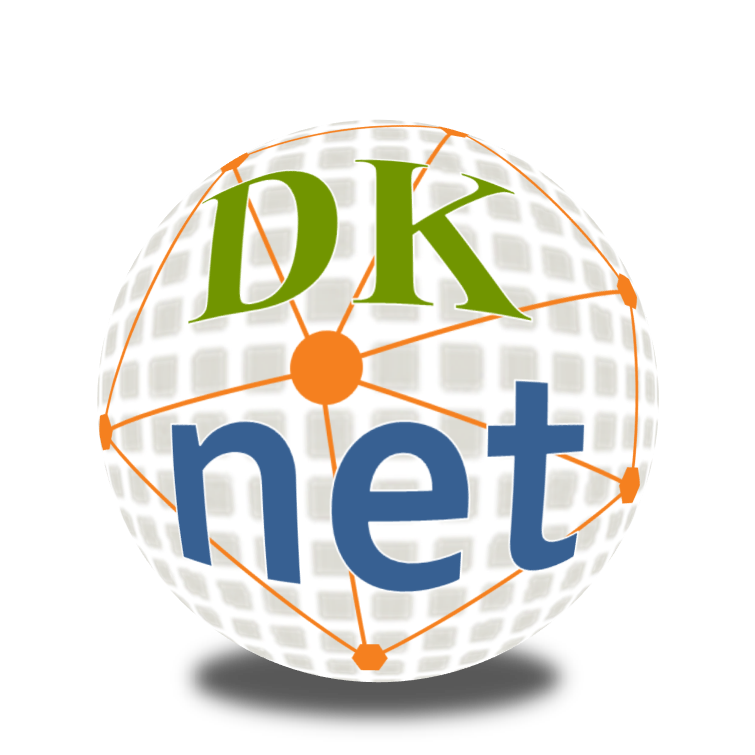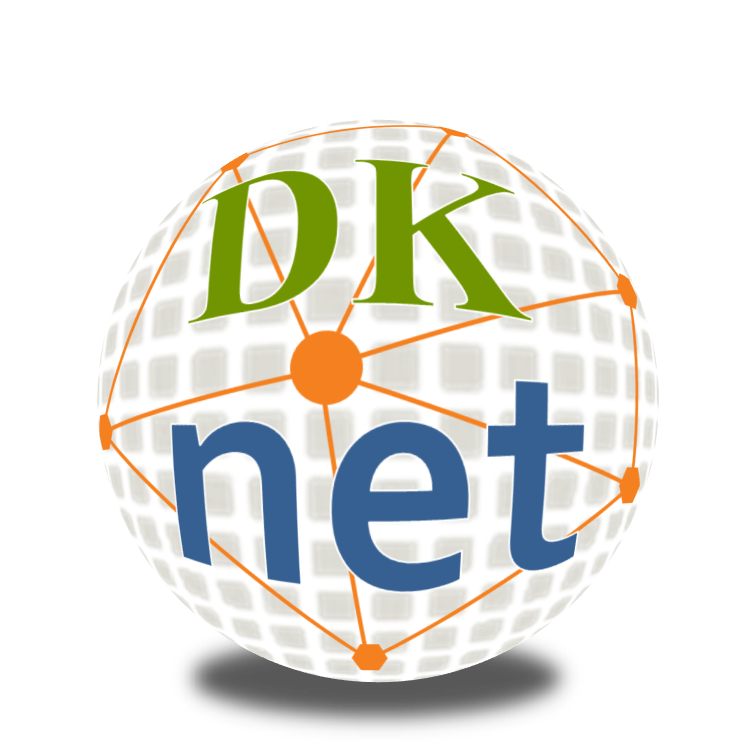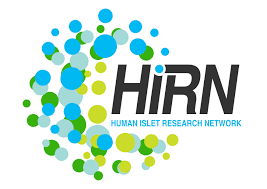dkNET community events and announcements in January, 2020
- 06:00pm December 20, 2019
- Ko-Wei Lin
Dear dkNET Community,
dkNET provides updates on activities of interest to the NIDDK-supported community. You could keep up to date on these activities through our Twitter feed @dkNET_info, through our Community Calendar, or through dkNET e-mail list. If you have an event or funding opportunities you'd like to advertise, please contact us info_at_dknet.org.
dkNET News
dkNET has announced two funding opportunities:
- dkNET New Investigator Pilot Program in Bioinformatics The pilot program is to provide support for Early Stage and New Investigators seeking to apply computationally-intensive methods to important questions in Diabetes, Endocrinology and Metabolic Diseases (DEMD) research. These awards will provide funding for preliminary studies that can serve as a foundation for the development of future grant applications in DEMD-focused topic areas. Letter of Intent Due Date: January 14, 2020; Application Due Date: February 14, 2020.
- 2020 dkNET Summer of Data Student Internship To support researchers with the use of on-line resources, the 6-week dkNET Summer of Data Student Internship program provides students an opportunity to utilize the dkNET tools and resources in a research project and to provide feedback on their experience to the dkNET team. Students will learn best practices to enhance rigor and reproducibility and learn the basics of good data management by following the FAIR (Findable, Accessible, Interoperable, Reusable) data principles. dkNET will award a $1,000 scholarship to a limited number of high school, undergraduate or graduate (Masters or PhD) students who are working in a research lab during summer 2020. Awards will be determined by a competitive selection process. Application due date: April 5, 2019.
New research tools added:
- MoTrPAC(Molecular Transducers of Physical Activity Consortium) Data Hub (RRID:SCR_017611) is a data hub of a national research consortium designed to discover and perform preliminary characterization of a range of molecular transducers that underlie effects of physical activity in humans. It is used to study molecular changes that occur during and after exercise and to advance understanding of how physical activity improves and preserves health.
- EBRAINS Knowledge Graph (RRID:SCR_017612) is a metadata management system built for EBRAINS. It is a multi-modal metadata store that brings together information from different areas of the Human Brain Project as well as from external partners. It is a graph database tracks linkage between experimental data and neuroscientific data science supporting more extensive data reuse and complex computational research. It supports rich terminologies, ontologies, and controlled vocabularies, and is built by design to support iterative elaborations of common standards and supports these by probabilistic suggestion and review systems.
- ChemRICH (RRID:SCR_017609) is a software tool for chemical similarity enrichment analysis of metabolomics datasets. It is used in studies to uncover biological mechanisms in organisms under genetic or environmental stress in system biology manner or finding risk factors for chronic diseases in exposome wise association studies using blood specimens, and allows users to realize pathway analysis.
- Blood Exposome Database (RRID:SCR_017610) contains a collection of chemical compounds and associated information that is automatically extracted by text mining content of PubMed and PubChem databases. It unifies chemical lists from metabolomics, systems biology, environmental epidemiology, occupational exposure, toxicology and nutrition fields.
dkNET upcoming webinar:
Events in January, 2020
Jan. 05, 2020
Registration Deadline: NIDDK Symposium - Imaging the Pancreas in Diabetes, and Benign and Malignant Exocrine Pancreatic Disease
There are a large number of questions that are arising from clinical experience in the exocrine pancreas field that impact issues of diabetes pathogenesis, and vice versa—the observation of substantial changes in exocrine size and likely architecture that precede diabetes onset is one striking example of this. Other examples include inflammation and changes in organ blood flow, and the incidence of diabetes (both T1D and T2D) with exocrine diseases of various sorts. Treatment of a disease with an endocrine or exocrine pathogenesis can affect the function (good and bad) of the entire pancreas. It has become clear that while the endocrine and exocrine pancreas are studied by different communities, and the diseases are treated by people in different medical disciplines, there is a great deal to be learned at the intersection. Imaging of the pancreas is at that intersection. Many of the goals for imaging in the pancreas are similar for endocrinologists and pancreatologists, and include size, architecture and tissue physical properties such as stiffness, vasculature, nerves, inflammation, fibrosis and fat deposition. Even imaging goals specific to different disciplines, such as the goals to image islet and beta cell mass and function or to visualize tumors, can yield information that is likely to inform both communities of scientists and clinicians. Location: Bethesda, MD, USA
More information: https://www.niddk.nih.gov/news/meetings-workshops/2019/imaging-pancreas-diabetes
Jan. 05, 2020
Registration Deadline: NIDDK Workshop - Strategies for Clinical Imaging in Diabetes
The ability to noninvasively image the cell types of the pancreatic islet and their function, particularly the beta cell, would allow diabetes researchers to observe and learn about the natural history of diabetes in living human beings. Most of the information we have currently about the fate of the insulin-producing cells comes from single snapshots taken in cadaver pancreas from people in various stages of diabetes. At this time, there are several promising imaging agents in various stages of development and validation. Location: Bethesda, MD, USA
More information: https://www.niddk.nih.gov/news/meetings-workshops/2019/strategies-clinical-imaging-diabetes
Abstract Deadline:Integrating Metabolism and Immunity
Traditionally, metabolism and immunity have been perceived as two distinct systems with distinct functions: metabolism regulates the disposal and transformation of nutrients, whereas the immune system is responsible for host defense. However, in a broader sense, these two processes are both an organism’s response to stressors, with the aim of restoring homeostasis. An increasing amount of evidence has demonstrated that the chronic activation of the immune system associated with overnutrition may be deleterious, contributing importantly to diabetes and long-term complications, such as cardiovascular disorders. Such dysregulation of the immune system may reflect the duration and magnitude of the metabolic stress, along with genetic predispositions. Accordingly, anti-inflammatory treatments of metabolic diseases emerge as therapies interfering with the pathogenesis of these illnesses and offer disease-modifying potential. Therefore, it is critical that clinical translation be based on an understanding of the physiology and pathophysiology of the role of the immune system in metabolism. This conference will bring together basic scientists and clinicians from both disciplines in order to spark innovative ways of understanding the interactions between the immune system and metabolism. The conference organizers anticipate that the conference will lead to the development of novel therapeutic concepts based on the pathways underlying the pathogenesis of diseases rather than on the manifestation of symptoms belonging to a specific clinical discipline. Location: Keystone, CO 80435, USA
More information: http://www.keystonesymposia.org/index.cfm?e=Web.Meeting.Program&\;meetingid=1690&\;subTab=program
Jan. 13-15, 2020
NIDDK Symposium: Imaging the Pancreas in Diabetes, and Benign and Malignant Exocrine Pancreatic Disease
There are a large number of questions that are arising from clinical experience in the exocrine pancreas field that impact issues of diabetes pathogenesis, and vice versa—the observation of substantial changes in exocrine size and likely architecture that precede diabetes onset is one striking example of this. Other examples include inflammation and changes in organ blood flow, and the incidence of diabetes (both T1D and T2D) with exocrine diseases of various sorts. Treatment of a disease with an endocrine or exocrine pathogenesis can affect the function (good and bad) of the entire pancreas. It has become clear that while the endocrine and exocrine pancreas are studied by different communities, and the diseases are treated by people in different medical disciplines, there is a great deal to be learned at the intersection. Imaging of the pancreas is at that intersection. Many of the goals for imaging in the pancreas are similar for endocrinologists and pancreatologists, and include size, architecture and tissue physical properties such as stiffness, vasculature, nerves, inflammation, fibrosis and fat deposition. Even imaging goals specific to different disciplines, such as the goals to image islet and beta cell mass and function or to visualize tumors, can yield information that is likely to inform both communities of scientists and clinicians. Location: Bethesda, MD, USA
More information: https://www.niddk.nih.gov/news/meetings-workshops/2019/imaging-pancreas-diabetes
Jan. 13, 2020
Abstract Submission Deadline: American Diabetes Association 80th Scientific Sessions
The Scientific Sessions offers researchers and health care professionals an amazing opportunity to share ideas and learn about the significant advances in diabetes research, treatment, and care. Over the course of five days, attendees will receive exclusive access to more than 2,800 original research presentations, take part in provocative and engaging exchanges with leading diabetes experts, and expand professional networks with over 15,000 attendees from around the world. Location: Chicago, IL, USA
More information: https://professional.diabetes.org/scientific-sessions
NIDDK Workshop: Strategies for Clinical Imaging in Diabetes
The ability to noninvasively image the cell types of the pancreatic islet and their function, particularly the beta cell, would allow diabetes researchers to observe and learn about the natural history of diabetes in living human beings. Most of the information we have currently about the fate of the insulin-producing cells comes from single snapshots taken in cadaver pancreas from people in various stages of diabetes. At this time, there are several promising imaging agents in various stages of development and validation. Location: Bethesda, MD, USA
More information: https://www.niddk.nih.gov/news/meetings-workshops/2019/strategies-clinical-imaging-diabetes
Jan. 15, 2020
Response Date: Request for Information (RFI) - Increasing the diversity of applications to the NIH Common Fund High-Risk, High-Reward Research Program
The purpose of this Request for Information (RFI) is to solicit information from the broad community about factors that lead to underrepresentation of certain groups in the applicant pool of the Common Fund’s High-Risk, High-Reward Research Program and approaches that the NIH might take to increase applicant diversity. The NIH is seeking input from the scientific community about factors that may contribute to underrepresentation of women, underrepresented groups, and geographically diverse institutions. The NIH also seeks input concerning approaches that might be taken to enhance the diversity within this program.
More information: https://grants.nih.gov/grants/guide/notice-files/NOT-RM-20-002.html
2020 International Symposium on Chemical Biology
The NCCR Chemical Biology is organising the 2020 International Symposium on Chemical Biology to be held from January 22 to 24, 2020 at Campus Biotech in Geneva. This international meeting of high scientific calibre will bring together leading scientists to feature the latest advances within the broad field of Chemical Biology and foster an open and dynamic dialogue!
Location: Geneva, Switzerland
More information: https://symposium.nccr-chembio.ch
Jan. 22-24, 2020
European RFMF Metabomeeting 2020
The French-speaking Metabolomics and Fluxomics Network (RFMF), Metabolomics Profiling Forum (MPF, Metabomeeting) and European regional metabolomics networks are pleased to announce a joint conference taking place from 22nd to 24th January 2020 in Toulouse (France). The European RFMF Metabomeeting in Toulouse will propose thematic sessions dedicated to: (1) Analytical developments in Metabolomics & Fluxomics (2) Computational and statistical developments in Metabolomics & Fluxomics (3) Cutting edge applications of Metabolomics and Fluxomics in : a. Human health b. Agriculture & Food c. Environmental science d. Microbiology & biotechnolgies.
Location: Toulouse, France
More information: https://rfmf-mpf-2020.sciencesconf.org
Jan. 24, 2020
dkNET Webinar: National Mouse Metabolic Phenotyping Center (MMPC)
Keystone Symposia: Diabetes: Glucose Control and Beyond (J5)
Modern technology has created a favorable climate for the “perfect metabolic storm”. Triggered by lifestyle habits that promote overnutrition and inactivity, Westernized societies are experiencing epidemic rates of obesity and its attendant co-morbidities. Foremost among these is type 2 diabetes mellitus, which is projected to reach a global prevalence of 10% by the year 2045. This grim epidemiological forecast has inspired intense efforts to unravel the molecular mechanisms that link positive energy balance to glucose intolerance and metabolic decline. This Diabetes meeting will assemble international leaders and rising stars in diverse biomedical disciplines with common interests in understanding and combatting cardiometabolic diseases. The program showcases new
insights into the molecular underpinnings of obesity-induced dysfunction of the major peripheral organs that coordinate energy flux and glucose control: skeletal and cardiac muscles, the pancreas, adipose tissue, the liver and gut. Thematic emphasis will center on nutrient sensing and signaling, inter-organ crosstalk, mechanisms of insulin resistance, mitochondrial bioenergetics, islet
biology and genetics of diabetes. A major goal of the meeting is to provide a forum that encourages interactions between basic and translational scientists at all career levels to critically evaluate recent advances and current controversies. Opportunities for interdisciplinary interactions will be further
enhanced by the concurrent meeting on Islet Biology: From Gene to Cell to Micro-Organ. This meeting will consider metabolism in relation to islet function, in addition to studies of islet cell plasticity and differentiation. Location: Santa Fe, NM, USA
More information: http://www.keystonesymposia.org/index.cfm?e=web.meeting.program&\;meetingid=1706
Jan. 27-31, 2020
Keystone Symposia: Islet Biology: From Gene to Cell to Micro-Organ (J6)
Recent years have seen great strides in understanding pancreatic endocrine islet cells. Spurred by new and emerging technologies, we are making discoveries about the impact of genetic variation on islet cells; how islet cell subpopulations differ; communication between islet cells and with the local environment, including components of the immune system; and how these interact to effect islet loss and dysfunction. A more integrated understanding of these processes will lead to important insights into diabetes and its treatment. Connecting researchers in the complimentary fields of genomics, immunology, islet cell function, and single-cell biology will be crucial to realizing this. One of the goals of this Keystone conference is to promote greater integration in our approaches to studying islet biology - spanning from genes, to single cells, to islets as micro-organs, and to the interaction of these with their local environment. Conference participants will learn about new methods and technological approaches among islet-biology investigators. This conference will also help to facilitate the development of new collaborations among attendees. We anticipate that this conference will highlight the challenges and potential new solutions in bringing integrated approaches to islet biology for the advancement of diabetes-related knowledge. Location: Santa Fe, NM, USA
More information: http://www.keystonesymposia.org/index.cfm?e=web.meeting.program&\;meetingid=1707
Funding opportunities information and deadlines in January, 2020
Jan. 06, 2020
NIDDK Funding Opportunity Application Due Date: Methods to Improve Reproducibility of Human iPSC Derivation, Growth and Differentiation (SBIR) (R44 Clinical Trial Not Allowed)
Human induced pluripotent stem cells (iPSCs) have been used with great success to mimic the differentiation of a variety of tissues, understand early development and study human diseases. Despite approaches that have made the derivation, growth and differentiation of iPSCs more efficient, there remains significant variability in reprogramming efficacy, genomic integrity and developmental potential of iPSCs derived from a single fibroblast or tissue sample. Thus, iPSCs derived from the same sample may differ in their in vitro growth characteristics and their ability to re-differentiate into the desired tissue type. A variety of issues may affect derivation of the iPSCs and their growth, stability and differentiation, including the specific characteristics of the starting cell or tissue sample (e.g., age of donor, tissue type and anatomical location, physiological and disease state), the methods and protocols used to induce pluripotency (e.g., transcription factors, small molecules, cell fusion), the choice of growth factors and other culture conditions, method of storage of cell lines, etc. Further challenges include growing and maintaining sufficient quantities of iPSC lines in culture without changes in their properties, as well as the ability of multiple investigators to identify and authenticate iPSC lines as part of their research. This Funding Opportunity Announcement (FOA) will support SBIR projects to develop novel, reliable and cost-effective methods to standardize and increase the utility and reproducibility of iPSCs at all stages, from their derivation to their research and clinical applications. More information: https://www.niddk.nih.gov/research-funding/current-opportunities/rfa-gm-19-001
dkNET Funding Opportunity Letter of Intent Due Date: New Investigator Pilot Program in Bioinformatics
The goal of the dkNET Pilot Award program is to provide support for Early Stage and New Investigators seeking to apply computationally-intensive methods to important questions in diabetes, endocrinology and metabolic diseases research. These awards will provide funding for preliminary studies that can serve as a foundation for the development of future grant applications in DEMD-focused topic areas. dkNET Pilot Award applications should focus on applying computational and/or modeling approaches to compelling research problems in diabetes, endocrinology and related metabolic disorders. Consistent with these goals, this program will support projects focused on a wide array of topics including, but not limited to: Metabolic modeling of known and unknown pathway kinetics and compartmentalization in diabetes and/or endocrine or metabolic disorders;Network and systems biology of intra and intercellular regulation and inter-tissue and organ homeostasis focused on etiology, diagnosis, prognosis or responses to treatment, including computational approaches to identify biomarkers capable of tracking disease process or progress;Structural biology/informatics and chemical informatics of endocrine and metabolic pathways in diabetes, endocrinology and related metabolic diseases;High-throughput and/or high information content image analysis of organs or tissues of relevance to diabetes or metabolic disease;Computational characterization of the normal or abnormal development of involved organs such as the formation of pancreatic islets.Of particular interest are projects that can leverage and expand the utility of existing large datasets developed in NIDDK projects and programs. For examples, see the dkNET webpage at NIDDK-specific-repositories. Research designed to address important research questions through the development of new analytical tools, or through novel secondary analyses of existing datasets are encouraged. More information: https://dknet.org/about/new-investigator-pilot
Jan. 19, 2020
NIDDK Funding Opportunity Letter of Intent Due Date: Limited Competition for the Closeout of the SEARCH for Diabetes in Youth Cohort Study (R01 Clinical Trial Not Allowed)
The purpose of this Funding Opportunity Announcement (FOA) is to complete the SEARCH for Diabetes in Youth Cohort Study. SEARCH has recruited a cohort of youth with diabetes who have been followed longitudinally. The purpose of this FOA is to complete data analyses and disseminate scientific findings regarding the evolution of diabetes-related complications, including mortality, and processes of care and quality of life. More information: https://grants.nih.gov/grants/guide/rfa-files/RFA-DK-19-507.html





